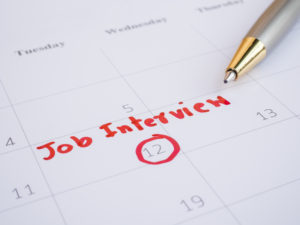Challenging Interview FAQs and How to Answer Them
|
Landing a job interview is always a great feeling. Clearly, your resume piqued the interest of the prospective employer, and they now want to learn more about you through an interview. Taking the time to prepare for your interview by researching the company and position is essential to acing the interview and advancing to the next step in the employment process. It is also critical that you take the time to think about ‘how’ you are going to respond to certain tough or challenging questions that almost always come up during an interview. The following are some of the most commonly asked challenging interview questions and how to effectively answer them:

“Tell Me About Yourself.”
Almost every interviewer asks this question in one way or another during an interview to use it as an ice-breaker. Although it’s a common question, many people still get tripped up on how to respond to it. Since it is so open-ended, you may be unsure whether to focus on discussing your personal or professional life; where do you begin? Should you consider talking about where you grew up, your hobbies, where you currently live, your first job after college, etc.? Since you may be unsure of what exactly the interviewer wants to know about you, some would argue it’s safe to stick to discussing your professional life only. If you respond with a concise snapshot of who you are and why you are the best candidate for the position, you will be off to a great start. Before your interview, outline a strategy on how to answer this question. Weaving in key points related to your relevant experience, and accomplishments will surely go over well.
“What are some of your weaknesses?”
This question is one of the most dreaded that many interviewers ask just to see how you will respond and react. Clearly, we all have weaknesses, and if you answer by saying you do not have any, you would appear to be disingenuous. A good approach is to prepare this response ahead of the interview so you can stay calm and answer the question without getting flustered. It is a good idea to discuss a weakness that you have been actively working to overcome. For example: If you have issues with prioritizing your workload, or delegating work to others, explain in detail what specific actions you have taken to correct the situation.
“What is the reason for the gap in unemployment?”
Many people often have a gap of a few months in between jobs, and this is usually nothing to worry about. If asked about the short term gap, you can easily explain this as time spent updating your resume, job hunting, taking some time to do some projects around the house, or taking some time out for a much-needed vacation. If you have a gap of 1 year or longer, expect that you will be asked to explain how you spent your time. It is critical that you can clearly explain what you did with your time, other than just searching for a job. Whether it was volunteer work, occasional consulting gigs, or caring for a sick family member, you should have a well prepared and truthful answer ready to account for your time.
Certainly, no one can predict exactly what questions an employer will ask during an interview, but being well-prepared will help. Knowing in advance how you will answer certain challenging questions can help increase your chances of acing that interview!
We add new jobs to our career postings every day. Send us your resume to find your next job.
Leave a Reply




